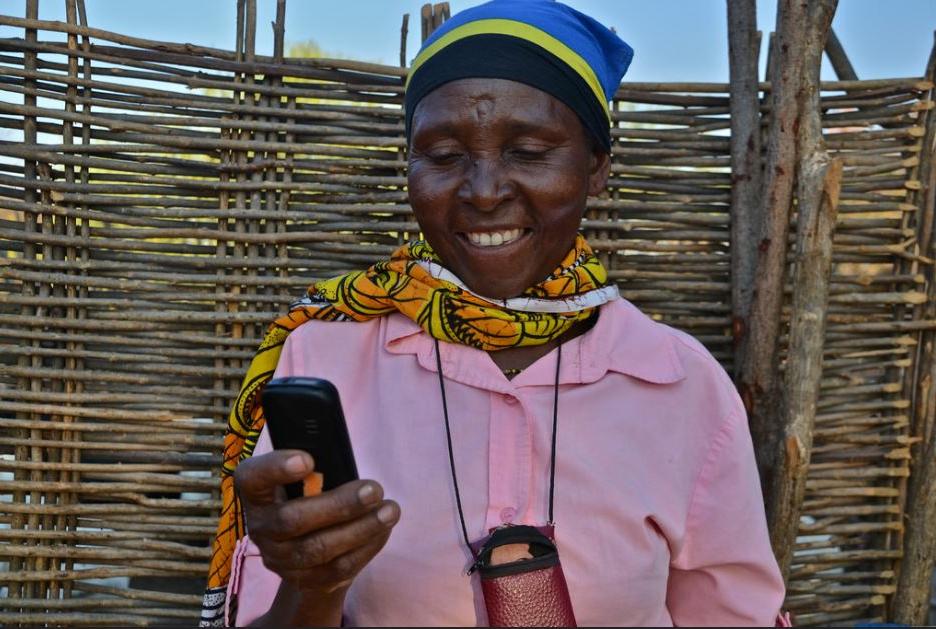Smallholder Diaries Open Doors to Financial Services

Men cultivating land following heavy rain in Endulen, Tanzania (Photo by Geoff Sayer / Oxfam) Creative Commons license via Flickr)
By Sunny Lewis
DAR ES SALAAM, Tansania, June 23, 2016 (Maximpact.com) – Smallholder households, cultivating less than five acres, have financial needs that have been ignored until now, yet without this information, it’s tough for financial service providers supply smallholders with services, such as mobile money.
About two years ago, the Consultative Group to Assist the Poor (CGAP), a financial inclusion think tank of 34 organizations housed at the World Bank, decided to bridge this gap and gather smallholders’ information.
So, in June 2014, CGAP launched a year-long project “Financial Diaries with Smallholder Families,” known as the “Smallholder Diaries.”
These diaries offer an in-depth look at ways smallholders are affected by the agricultural cycle and how they manage their money in response to seasonal ebbs and flows.
Conducted between June 2014 and July 2015, the diaries documented the financial and in-kind transactions of 270 households in impoverished northern Mozambique, the fertile farmlands of western Tanzania, and in Punjab province, the breadbasket of Pakistan.
The findings “National Survey Details Financial Lives of Smallholders in Tanzania” were released at an event held in Dar es Salaam late in May. Among the organizers and panelists were people from CGAP, from research firms Financial Sector Deepening Trust–Tanzania (FSDT) and InterMedia, and from a global strategy consulting firm, Bankable Frontier Associates.
The diaries point to ways that financial service providers might better meet smallholders’ needs.

Smallholder Diaries participants in Mozambique record their lives in images. (Photo by Erin Scronce) Posted for media use.
Some of the diaries were written and others were photographed. CGAP equipped a small group of Smallholder Diaries participants in Mozambique with cameras and asked them to record images from their daily lives that represent challenges and successes.
Smallholder households face many risks: weather, pests, theft, illness and death all threaten the livelihoods of smallholder families by disrupting agricultural activities and depleting financial, emotional, and human resources. In most cases, smallholders are not equipped with the financial tools they need to cope with these risks.
In collaboration with the Financial Sector Deepening Trust–Tanzania (FSDT), CGAP conducted a nationally representative survey of Tanzania’s smallholder households between August and September 2015.
The survey found the next generation of farmers in Tanzania is uncertain and facing many challenges. At least 62 percent of smallholders are over 40 years old, and about 13 percent are under 30. Many live in extreme poverty, depend on their land and have few other income sources or financial tools.
“Smallholders are the backbone of rural Tanzania and as such, their engagement in the financial sector is very important,” said Mwombeki Baregu, head of rural and agriculture finance with the research firm FSDT.
“Through this forum we want to discuss how to better service smallholder farmers to provide them with the products and services they need and want,” Baregu said. “Financial diaries and surveys give us insights into these needs and wants and what we will try to do is use them to develop solutions.”
In Tanzania, 98 percent of farmers are smallholders who work on less than two hectares of crop land, according to the Tanzania Agriculture Census of 2010, the most recent data available.
Access to basic financial services, mobile phones and other innovative tools can help these families, particularly the most vulnerable, lowest income households, to transition out of extreme poverty.
Mobile money services can be a powerful tool to bring the unbanked and those using only informal financial services into the formal financial sector.
They transform a mobile phone from a communications tool into a channel for low-cost financial services such as payments, transfers, insurance, credit, and savings.
Mobile money is established and maturing in Tanzania overall, serving new business areas and enabling a wider range of digital payments, including among some smallholder households, the CGAP study found.
CGAP financial sector specialist Jamie Anderson said, “This national data collection and research could spark better understanding of smallholder households and hopefully lead to financial innovations for this important group of people. The research provides greater insights into how these families transact, make financial decisions and deal with challenges they face on a daily basis.”
The CGAP study says, “Major advances in financial inclusion will be driven by solutions for the lowest income smallholder families who make up a third of the smallholder sector in Tanzania.”
“This group lacks knowledge of mobile phones, providers or banks and they are not aware of the benefits of financial services. Providing relevant financial solutions that address the priorities and needs of these smallholder families is key to breaking the financial exclusion barrier,” finds the study.
Mobile money is an entry point for broader financial services, the survey concludes. Nearly half of smallholder farmers, 49 percent, have a mobile money account and this tool can be expanded to offer other more sophisticated financial options.
Some smallholders are using mobile money for more advanced services such as savings and merchant and service payments. Providers have the opportunity to offer more and better products to this growing group of customers.

Tanzanian smallholder uses her mobile phone, Oct. 2014 (Photo by Cilia Schubert) Creative Commons license via Flickr)